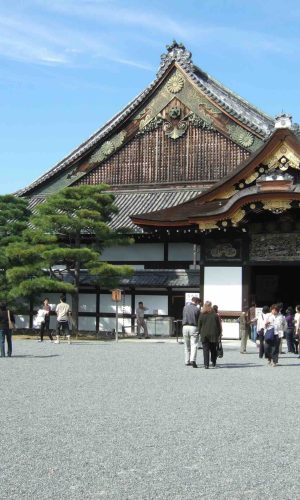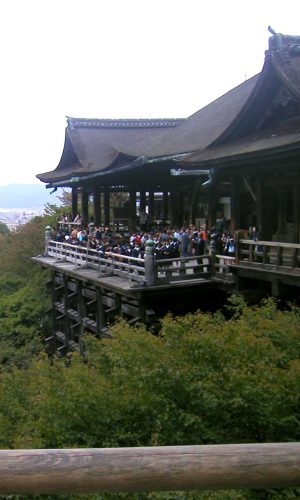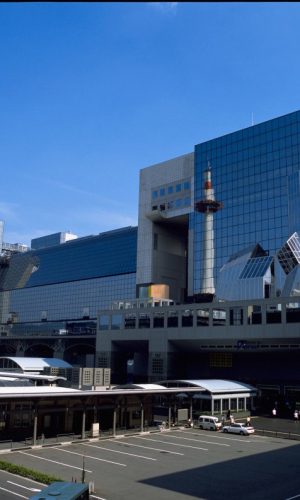August 17 - 21, 2026, Kyoto, Japan
18th Orthogonal Polynomials, Special Functions and Applications – OPSFA-18





News
- October 31, 2025: Please note that registration will open on February 21, 2026 (previously scheduled for December 1, 2025).
About
18th International Symposium on Orthogonal Polynomials, Special Functions and Applications (OPSFA-18)
Where
When
Monday afternoon 17 August to Friday 21 August 2026
OPSFA-18 is the eighteenth in a series of biennial conferences devoted to Orthogonal Polynomials, Special Functions and Applications, with a special focus on topics such as integrable systems, random matrix theory, Painlevé equations, exact WKB analysis, stochastic models, and other related areas. Contributions on additional related topics are also highly encouraged.
Since 1984, several conferences have been held where orthogonal polynomials, special functions, and their applications have been the main subjects. The first OPSFA conference took place in Bar-le-Duc, France, October 15-18, 1984. Initially the conferences were held in Europe but now they take place on various continents.
OPSFA-18 will be held at Hardy Hall on the Muromachi Campus of Doshisha University, located in central Kyoto behind the historic Kyoto Imperial Palace, from August 16, 2026 (arrival day) to August 22, 2026 (departure day). The campus is easily accessible—just a few minutes’ walk from Imadegawa Station on the Karasuma Subway Line, with direct access from Kyoto Station in about 10 minutes.
Important Dates
Notice: Due to technical reasons, the opening date for registration has been changed. The submission schedule remains unchanged, and you may submit your abstract before registration opens. We apologize for any inconvenience caused and appreciate your understanding.
- Registration open:
December 1, 2025February 21, 2026- Early bird registration deadline: May 31, 2026
- Final deadline: July 15, 2026
- Submission for talk/poster open: February 1, 2026
- Final deadline: May 15, 2026
- Financial support application deadline: April 15, 2026
- Notification of financial support: May 1, 2026
Accompanying persons will not be required to pay the registration fee. However, a charge will apply if they wish to attend the banquet.
An online registration system will be provided. Further details, including information on registration fees and submission guidelines, will be made available on the website.
Committees
Organizing Committee
- Satoshi Tsujimoto (Chair, Kyoto University)
- Hiroshi Miki (Co-Chair, Doshisha University)
- Benoit Collins (Kyoto University)
- Kazuki Maeda (University of Fukuchiyama)
- Satoru Odake (Shinshu University)
- Yoshitsugu Takei (Doshisha University)
- Teruhisa Tsuda (Aoyama Gakuin University)
- Luc Vinet (Université de Montréal)
Scientific Committee
- Jan de Gier (University of Melbourne)
- David Gómez-Ullate (IE University)
- Alexander Its (Indiana University)
- Erik Koelink (Radboud Universiteit)
- Ana Loureiro (University of Kent)
- Andrei Martínez-Finkelshtein (Baylor University, University of Almería)
- Hiroshi Miki (Doshisha University)
- Inés Pacharoni (FaMAF, Universidad Nacional de Córdoba)
- Pablo Roman (Universidad Nacional de Córdoba)
- Satoshi Tsujimoto (Kyoto University)
- Luc Vinet (Université de Montréal)
Steering Committee
- Howard Cohl (Elected SIAG/OPSF member)
- Teresa Peréz (representative from OPSFA-17, Spain)
- Luc Vinet (representative from OPSFA-16, Canada)
- Ana F. Loureiro (representative from OPSFA-14, UK)
Scientific Programme
The scientific programme of OPSFA-18 will consist of plenary lectures, thematic sessions, and a poster session.
Plenary Speakers
The plenary lectures will be given by leading experts in orthogonal polynomials, special functions, and related areas of mathematics and physics, presenting recent developments and perspectives in their fields.
- Gábor Szegő Prize Laureate (to be announced)
- Dan Dai (City University of Hong Kong, China)
- Jan Felipe van Diejen (University of Santiago, Chile)
- María Angeles García-Ferrero (ICMAT, Spain)
- Manuela Girotti (Emory University, USA)
- Kohei Iwaki (the University of Tokyo, Japan)
- Rinat Kedem (Urbana-Champaign, USA)
- Greta Panova (University of Southern California, USA)
- Makiko Sasada (the University of Tokyo, Japan)
- Guilherme Silva (University of São Paulo, Brazil)
- Yasuhiko Yamada (Kobe University, Japan)
Thematic Sessions and Poster Session
In addition to the plenary lectures, the scientific programme of OPSFA-18 will feature a series of thematic sessions and a poster session, covering a broad range of topics in orthogonal polynomials, special functions, and their applications.
Thematic sessions will be held in parallel, and all talks will be allotted 30 minutes (including discussions). Each thematic session is coordinated by one or more coordinators appointed by the Organizing Committee and aims to provide a coherent framework for contributed talks, fostering interaction and collaboration among participants working on related areas. All contributed talks must be submitted with the authors’ preferred thematic session. Contributed talks will be assigned to the most relevant session based on their abstracts.
The poster session will be held in order to encourage discussion among attendees. It will provide an additional opportunity for participants—especially PhD students and early-career researchers—to present their recent work and exchange ideas in an informal setting.
No separately organised mini-symposia are planned for OPSFA-18. All contributed presentations will be included within the thematic or poster sessions coordinated by the Organizing Committee. Each participant will be allowed to give only one presentation at the conference, either plenary, contributed talk, or poster.
List of Thematic Sessions
- Painlevé and Integrable Systems
- Random Matrices and Probability
- Exact WKB Analysis and Related Topics (Topological Recursion, Conformal Blocks, Beta-Ensembles)
- Orthogonal Polynomials, Mathematical Physics, and Interacting Particle Systems
- Algebraic Combinatorics
- Combinatorics, q-Series, Partitions, and Number Theory
- Quantum Walks and Quantum Information
- Asymptotics of Orthogonal Polynomials and Special Functions
- Multiple Orthogonal Polynomials
- Matrix Orthogonal Polynomials
- Orthogonal Polynomials on the Unit Circle
- Exceptional Orthogonal Polynomials
- Multivariate Special Functions
- Representation Theory and Special Functions
- General Orthogonal Polynomials, Hypergeometric and Special Functions (including Mathieu, Lamé, Heun, etc.)
- Applications of Orthogonal Polynomials and Special Functions – Interdisciplinary Topics (including Numerical Analysis, Data Science, Machine Learning, etc.)
(The above list is tentative and may be subject to further modification.)
Submission of Contributed Talks and Posters
Participants are invited to submit contributed talks or posters under one of the above thematic sessions at the time of registration. The final allocation of oral and poster presentations will be made by the Organizing Committee based on the abstracts received and the overall programme structure.
Information
Kyoto : Venue and Access
Hardy Hall, Muromachi Campus, Doshisha University, Kyoto, Japan
Kyoto is well connected to major cities in Japan by frequent and efficient transportation options:
(1) From Kansai International Airport (KIX), it takes approximately 1 hour and 30 minutes to reach Kyoto Station by JR Haruka train.
(2) From Osaka Itami Airport (ITM), it takes around 1 hour to Kyoto Station by limousine bus.
(3) From Tokyo Station, it takes about 2 hours and 15 minutes to Kyoto Station by JR Shinkansen (bullet train).
The conference will take place at Hardy Hall on the Muromachi Campus of Doshisha University, located in central Kyoto behind the historic Kyoto Imperial Palace. The campus is easily accessible—just a few minutes’ walk from Imadegawa Station on the Karasuma Subway Line, with direct access from Kyoto Station in about 10 minutes.
As one of Japan’s most historic cities, Kyoto is renowned for its rich cultural heritage, featuring beautiful temples, shrines, and traditional gardens. The city is also known for its distinctive local cuisine, including kaiseki (traditional multi-course meal), yudofu (tofu hot pot), and a wide variety of matcha-based sweets.
Accommodation
Please note that the first day of the conference is scheduled to begin in the afternoon. Therefore, staying in Osaka, Tokyo, or another city on the night of the 16th and traveling to Kyoto on the morning of the 17th is also a feasible option.
We have blocked a limited number of rooms for participants who may have difficulty securing accommodation. If you would like to make use of this option, please let us know.
Financial Support
Limited financial support, mainly for early career researchers* and students giving presentations, will be available. The deadline for the application will be April 15 2026 and the result will be notified in May 1 2026. Other information such as detailed submission guidelines will be given in the website.
* Early Career Researchers: Researchers within five years after obtaining their Ph.D degree, counted from April 1 2026.